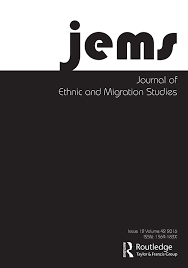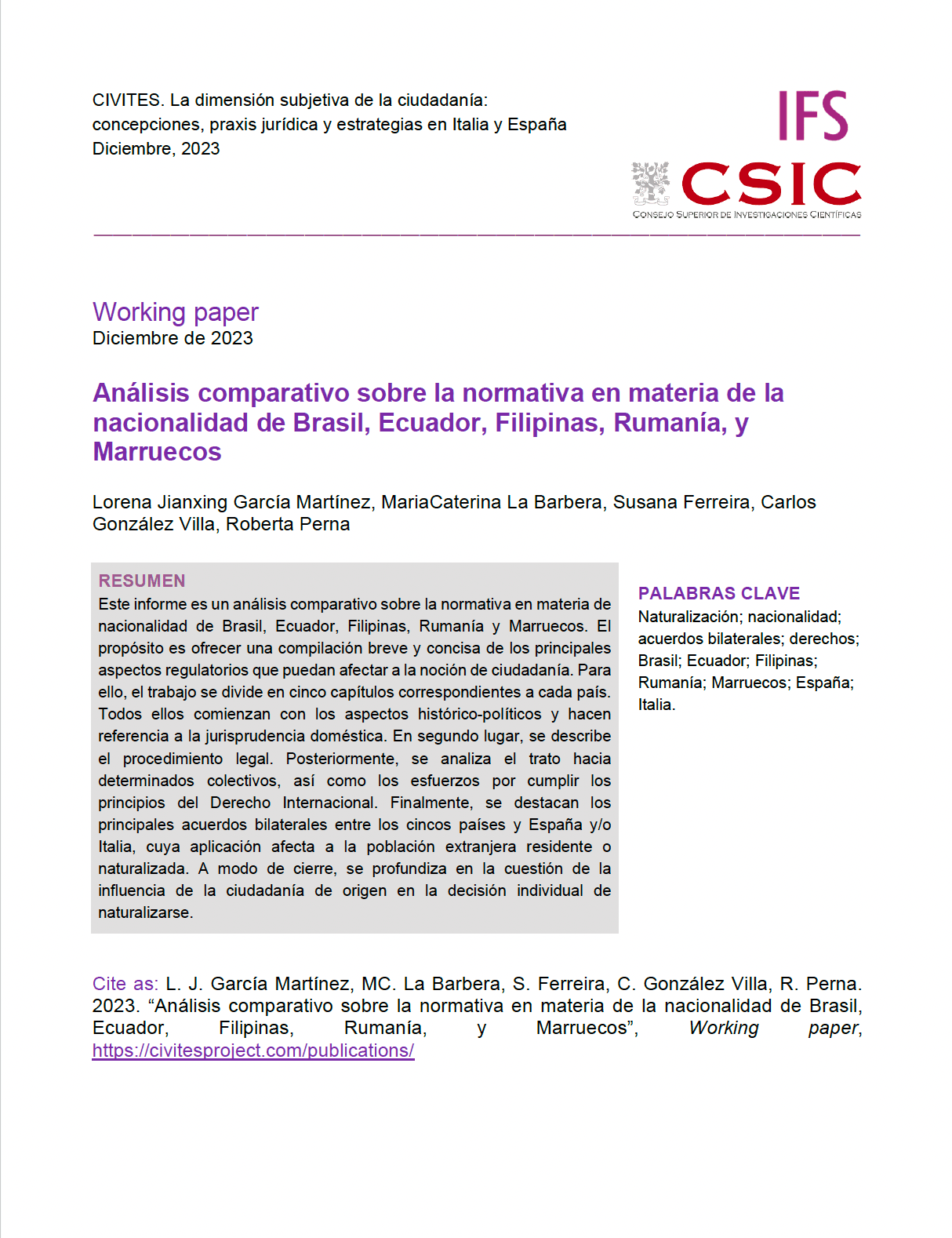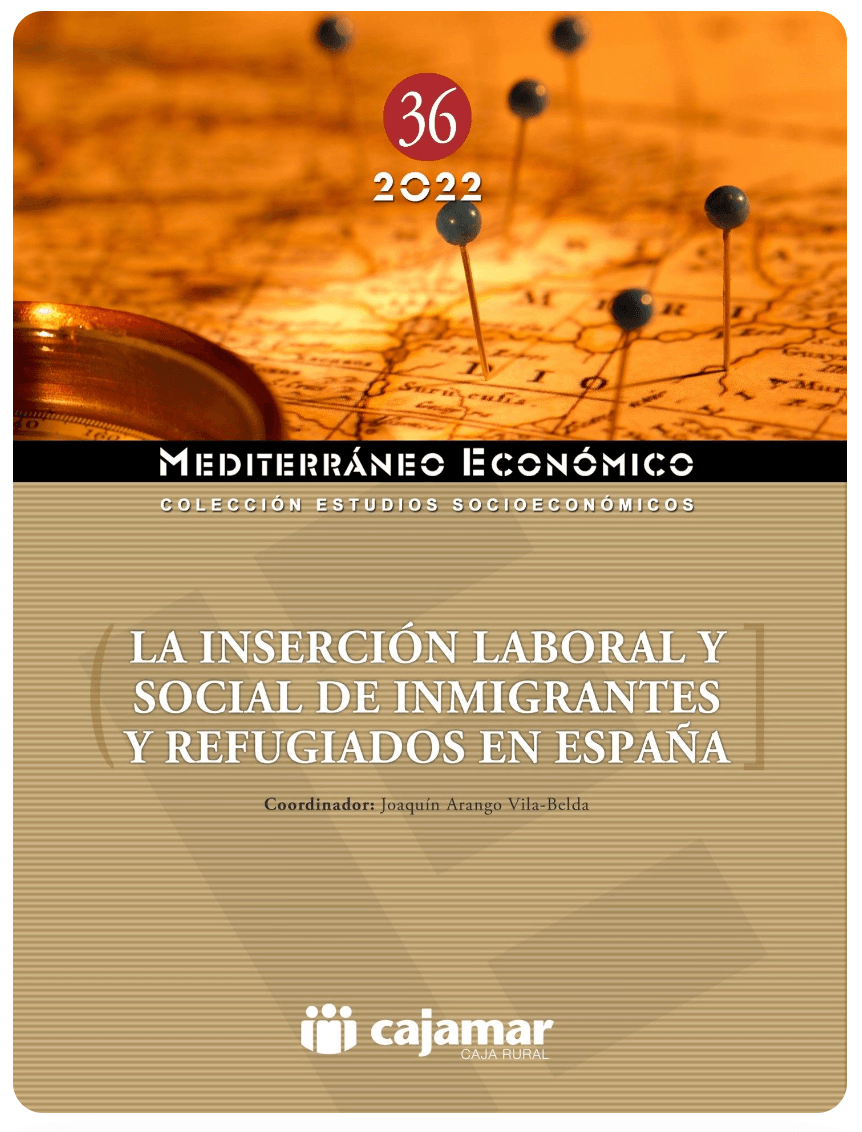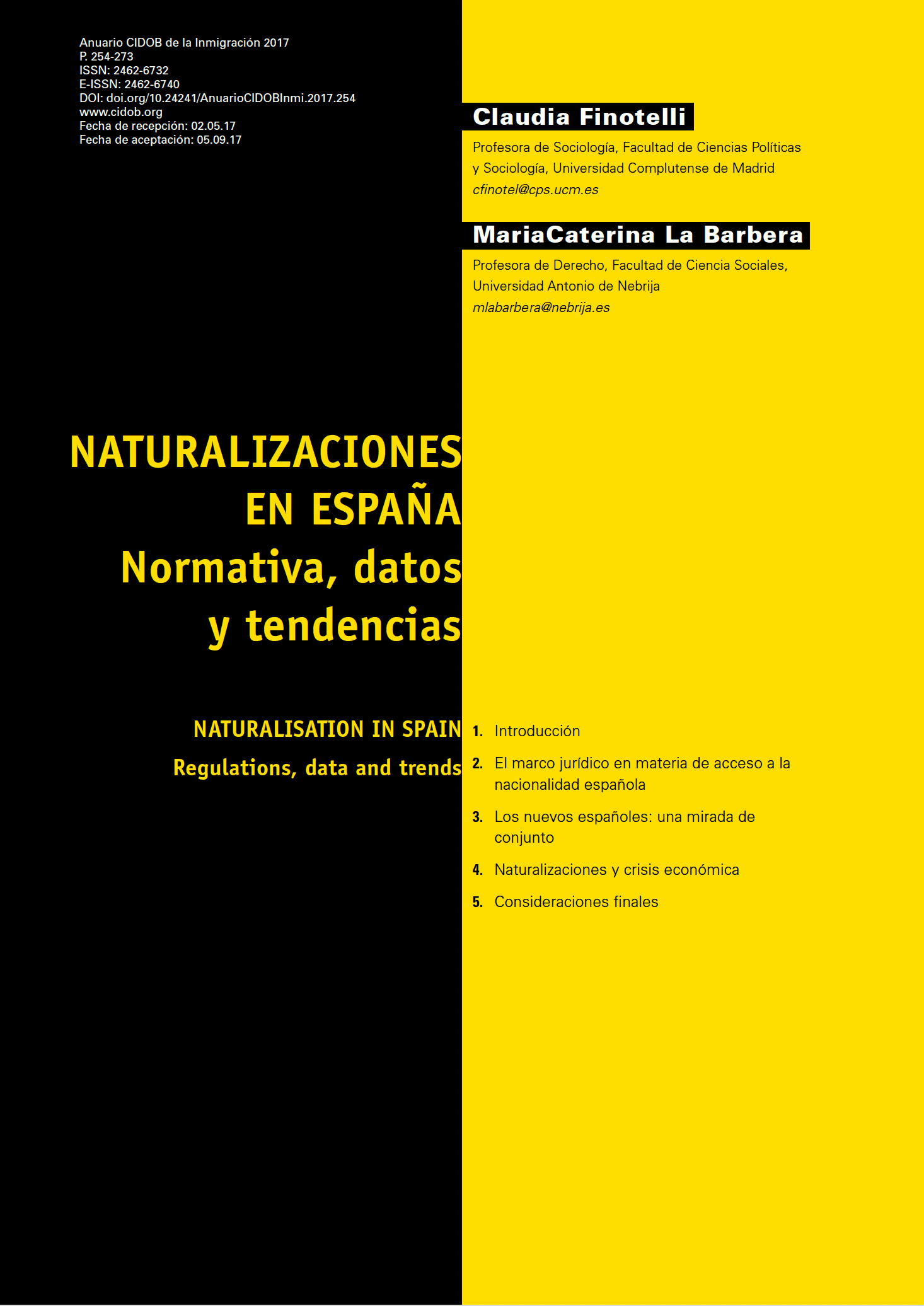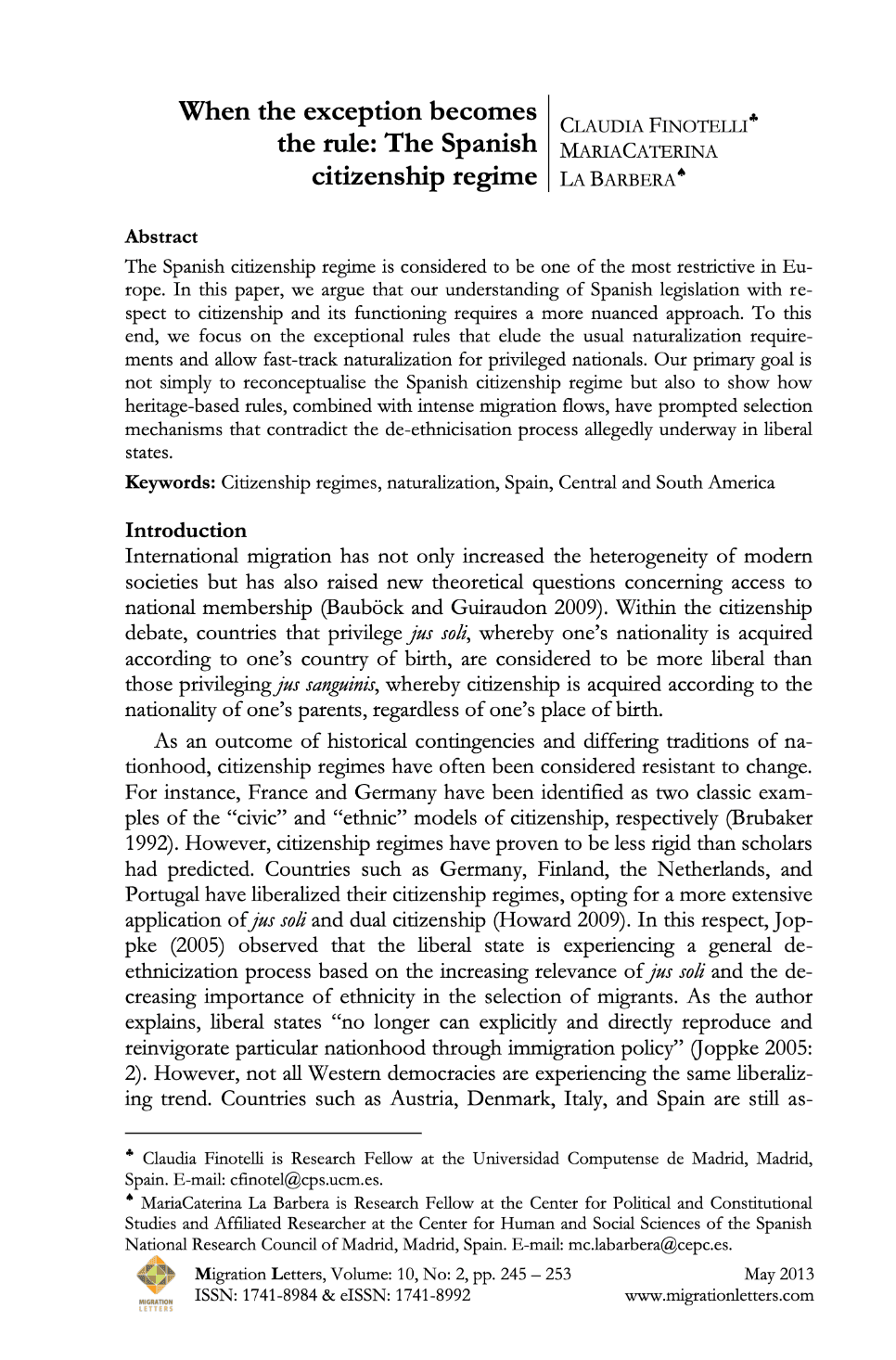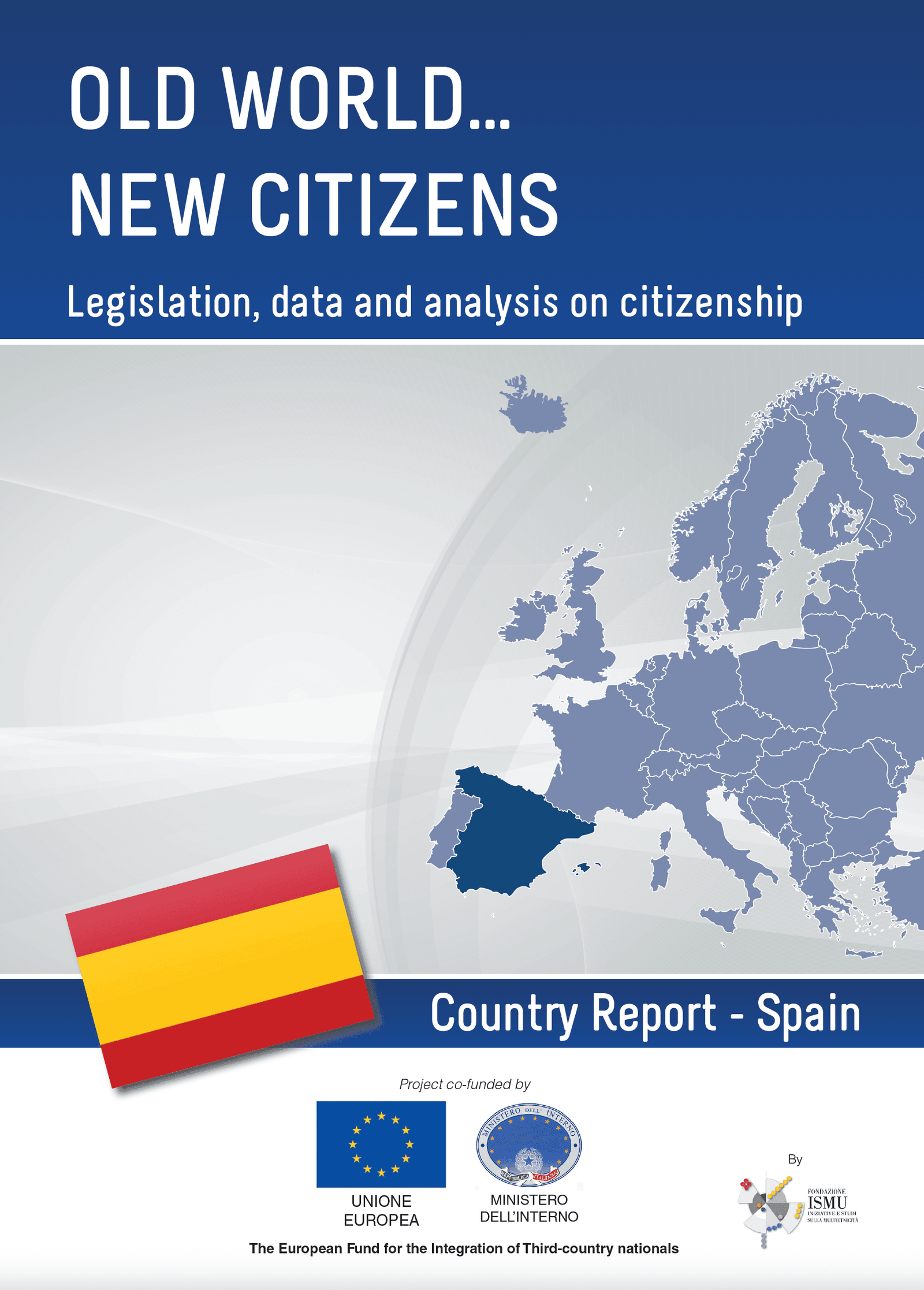MariaCaterina La Barbera & Claudia Finotelli
Head or heart? Unpacking the subjective dimension of citizenship acquisition: insights from migrants’ narratives in Spain Journal Article
In: Citizenship Studies, 2025.
Abstract | Links:
@article{nokey,
title = {Head or heart? Unpacking the subjective dimension of citizenship acquisition: insights from migrants’ narratives in Spain},
author = {MariaCaterina La Barbera & Claudia Finotelli
},
doi = {https://doi.org/10.1080/13621025.2025.2475817},
year = {2025},
date = {2025-03-14},
urldate = {2025-03-14},
journal = {Citizenship Studies},
abstract = {This article explores the subjective dimension of citizenship acquisition by analyzing how migrants in Spain feel about becoming citizens. Our research shows that the subjective dimension of citizenship is embedded in a complex constellation of strategic choices and affective motivations that cannot be analyzed in dichotomic terms. While migrants seek legal security, equal rights and better jobs, becoming citizens makes them feel more secure and increases their well-being. Moreover, citizenship acquisition has a performative effect that goes beyond just being accepted as members of the polity, and includes a sense of recognition and a sense of duty. Migrants’ narratives also show that expectations of social integration are countered by a persistent sense of otherness, especially in the case of racialized migrants. This article contributes to a more nuanced understanding of the subjective dimension of citizenship by unpacking the motivations, expectations, and affects of citizenship acquisition.},
keywords = {},
pubstate = {published},
tppubtype = {article}
}
Claudia Finotelli, MariaCaterina La Barbera & Stefania Yapo
The citizenship-integration nexus from below: migrants’ understanding of citizenship acquisition as a pathway to integration in Italy and Spain Journal Article
In: Journal of Ethnic and Migration Studies, 2025.
Abstract | Links:
@article{nokey,
title = {The citizenship-integration nexus from below: migrants’ understanding of citizenship acquisition as a pathway to integration in Italy and Spain},
author = {Claudia Finotelli, MariaCaterina La Barbera & Stefania Yapo},
doi = {https://doi.org/10.1080/1369183X.2025.2473619},
year = {2025},
date = {2025-03-21},
urldate = {2025-03-21},
journal = {Journal of Ethnic and Migration Studies},
abstract = {Citizenship acquisition represents a crucial step to achieve full integration in the country of residence. Yet, citizenship studies have largely addressed the relevance of institutional configuration of citizenship regimes to foster integration while sidelining migrants’ subjective understanding of citizenship as a pathway to integration. The objective of this article is to gather empirical evidence of migrants’ understanding of how citizenship acquisition shapes integration. It argues that the subjective dimension of citizenship acquisition is crucial to understand the citizenship-integration nexus beyond policies, institutions and legal norms. Empirical findings have been structured along three themes that are considered relevant for integration: well-being, sense of belonging, and trust. Analysis is based on 50 semi-structured interviews conducted in Italy and Spain with migrants from Ecuador, Brazil, Morocco, the Philippines, and Romania. Italy and Spain have been chosen for comparison as two countries with a similar migration history but different citizenship regimes. Results show that in both countries citizenship acquisition is related with increasing well-being and sense of trust, while the sense of belonging overlaps with a sense of non-belonging linked to discriminatory attitudes perceived in everyday practices, despite the legal inclusion through citizenship acquisition.},
keywords = {},
pubstate = {published},
tppubtype = {article}
}
Lorena Jianxing García Martínez, MariaCaterina La Barbera, Susana Ferreira, Carlos González Villa & Roberta Perna
Análisis comparativo sobre la normativa en materia de la nacionalidad de Brasil, Ecuador, Filipinas, Rumanía, y Marruecos Working paper
2023.
Abstract | Links:
@workingpaper{nokey,
title = {Análisis comparativo sobre la normativa en materia de la nacionalidad de Brasil, Ecuador, Filipinas, Rumanía, y Marruecos},
author = {Lorena Jianxing García Martínez, MariaCaterina La Barbera, Susana Ferreira, Carlos González Villa & Roberta Perna},
url = {https://civitesproject.com/wp-content/uploads/2024/11/Analisis-comparativo-sobre-la-normativa-en-materia-de-la-nacionaldiad-de-Brasil-Ecuador-Filipinas-Rumania-y-Marruecos-Lorena-Jianxing-Garcia.pdf},
year = {2023},
date = {2023-12-20},
urldate = {2023-12-20},
abstract = {Este informe es un análisis comparativo sobre la normativa en materia de nacionalidad de Brasil, Ecuador, Filipinas, Rumanía y Marruecos. El propósito es ofrecer una compilación breve y concisa de los principales aspectos regulatorios que puedan afectar a la noción de ciudadanía. Para ello, el trabajo se divide en cinco capítulos correspondientes a cada país. Todos ellos comienzan con los aspectos histórico-políticos y hacen referencia a la jurisprudencia doméstica. En segundo lugar, se describe el procedimiento legal. Posteriormente, se analiza el trato hacia determinados colectivos, así como los esfuerzos por cumplir los principios del Derecho Internacional. Finalmente, se destacan los principales acuerdos bilaterales entre los cincos países y España y/o Italia, cuya aplicación afecta a la población extranjera residente o naturalizada. A modo de cierre, se profundiza en la cuestión de la influencia de la ciudadanía de origen en la decisión individual de naturalizarse.},
keywords = {},
pubstate = {published},
tppubtype = {workingpaper}
}
Claudia Finotelli & MariaCaterina La Barbera
El régimen de ciudadanía en España: adquisición de la nacionalidad, integración legal y sentido de pertenencia Journal Article
In: Mediterraneo económico, vol. 36, pp. 207-221, 2022.
Abstract | Links:
@article{nokey,
title = {El régimen de ciudadanía en España: adquisición de la nacionalidad, integración legal y sentido de pertenencia},
author = {Claudia Finotelli & MariaCaterina La Barbera},
url = {https://publicacionescajamar.es/wp-content/uploads/2023/03/10-me-36-el-regimen-de-ciudadania-en-espana-adquisicion-de-la-nacionalidad-.pdf},
year = {2022},
date = {2022-12-14},
urldate = {2022-12-14},
journal = {Mediterraneo económico},
volume = {36},
pages = {207-221},
abstract = {La adquisición de la nacionalidad ha sido considerada durante mucho tiempo el canal principal para alcanzar la plena integración social. Más recientemente se han propuesto
interpretaciones en las cuales la adquisición de la nacionalidad en el país de residencia obedecería a razones instrumentales desligadas del sentido de pertenencia. El objetivo
de este capítulo es analizar el régimen de ciudadanía español teniendo en cuenta la relación entre motivaciones estratégicas y sentido de pertenencia. En él se explora el significado de la ciudadanía a nivel individual y se distinguen dos dimensiones: una práctica ligada al deseo de conseguir pleno acceso a los derechos, y otra afectiva ligada al sentido de pertenencia, tanto hacia el país de origen como al de residencia. Los resultados muestran que las motivaciones estratégicas y el sentido de pertenencia no son factores mutuamente excluyentes, sino intrínsecamente conectados.},
keywords = {},
pubstate = {published},
tppubtype = {article}
}
interpretaciones en las cuales la adquisición de la nacionalidad en el país de residencia obedecería a razones instrumentales desligadas del sentido de pertenencia. El objetivo
de este capítulo es analizar el régimen de ciudadanía español teniendo en cuenta la relación entre motivaciones estratégicas y sentido de pertenencia. En él se explora el significado de la ciudadanía a nivel individual y se distinguen dos dimensiones: una práctica ligada al deseo de conseguir pleno acceso a los derechos, y otra afectiva ligada al sentido de pertenencia, tanto hacia el país de origen como al de residencia. Los resultados muestran que las motivaciones estratégicas y el sentido de pertenencia no son factores mutuamente excluyentes, sino intrínsecamente conectados.
Claudia Finotelli, MariaCaterina La Barbera & Gabriel Echeverría
Beyond instrumental citizenship: the Spanish and Italian citizenship regimes in times of crisis Journal Article
In: Journal of Ethnic and Migration Studies, vol. 44, iss. 17, pp. 2320-2339, 2017.
Abstract | Links:
@article{nokey,
title = {Beyond instrumental citizenship: the Spanish and Italian citizenship regimes in times of crisis},
author = {Claudia Finotelli, MariaCaterina La Barbera & Gabriel Echeverría},
url = {https://www.tandfonline.com/doi/abs/10.1080/1369183X.2017.1345838?journalCode=cjms20},
doi = {10.1080/1369183X.2017.1345838},
year = {2017},
date = {2017-08-30},
urldate = {2017-08-30},
journal = {Journal of Ethnic and Migration Studies},
volume = {44},
issue = {17},
pages = {2320-2339},
abstract = {The aim of this article is to contribute to the current debate on integration during economic downturn by analysing to what extent citizenship regimes may offer opportunities for instrumental uses of naturalisation in times of economic crisis. Its main goal is to provide a more nuanced view of citizenship acquisition, its implications and its alleged instrumental uses to stabilise legal status and improve mobility chances. For this purpose, our analysis focuses on the nexus between citizenship regimes and naturalisations trends in Italy and Spain as two major Southern European immigration countries that have similar migration histories, but rather different citizenship regimes. The first part of the article provides an overview of the scholarly debate on the concept of instrumental citizenship and elaborates a typology of the possible instrumental uses by states and migrants. The second part examines the citizenship regimes and analyses the opportunity structures opened up by citizenship acquisition channels in Italy and Spain. Finally, the article analyses naturalisation trends to show that instrumental uses of citizenship acquisition are closely connected to the different opportunity structures offered by the Italian and Spanish citizenship regimes.},
key = {Instrumental citizenship; citizenship regimes:naturalisationintegrationItaly Spainintra-EU-mobility},
keywords = {},
pubstate = {published},
tppubtype = {article}
}
Claudia Finotelli & MariaCaterina La Barbera
Naturalizaciones en España: normativa, datos y tendencias Journal Article
In: Anuario CIDOB de la Inmigración, pp. 254-273, 2017.
Abstract | Links:
@article{nokey,
title = {Naturalizaciones en España: normativa, datos y tendencias},
author = {Claudia Finotelli & MariaCaterina La Barbera},
url = {https://www.cidob.org/sites/default/files/2024-10/253-274_CLAUDIA%20FINOTELLI%20%26%20MARIACATERINA%20LA%20BARBERA.pdf},
doi = { https://doi.org/10.24241/AnuarioCIDOBInmi.2017.254},
year = {2017},
date = {2017-12-20},
urldate = {2017-12-20},
journal = {Anuario CIDOB de la Inmigración},
pages = {254-273},
abstract = {Este artículo analiza la normativa vigente en materia de obtención de la ciudadanía española y la evolución de las concesiones de la nacionalidad española entre 2005 y 2015. El análisis presta especial atención a las naturalizaciones por residencia debido a su relevancia estadística, centrándose en el requerimiento de dos años de residencia para los nacionales de países de América Central y del Sur, Andorra, Filipinas, Guinea Ecuatorial y Portugal. Finalmente, se discute la relación entre naturalizaciones y crisis económica y se
indican algunas posibles tendencias futuras.},
keywords = {},
pubstate = {published},
tppubtype = {article}
}
indican algunas posibles tendencias futuras.
Claudia Finotelli & MariaCaterina La Barbera
When the exception becomes the rule: The Spanish citizenship regime Journal Article
In: Migration Letters, vol. 10, no. 2, pp. 245-253, 2013.
Abstract | Links:
@article{nokey,
title = {When the exception becomes the rule: The Spanish citizenship regime},
author = {Claudia Finotelli & MariaCaterina La Barbera},
url = {https://migrationletters.com/index.php/ml/article/view/146/139},
doi = {10.33182/ml.v10i2.146},
year = {2013},
date = {2013-05-31},
urldate = {2013-05-31},
journal = {Migration Letters},
volume = {10},
number = {2},
pages = {245-253},
abstract = {The Spanish citizenship regime is considered to be one of the most restrictive in Europe. In this paper, we argue that our understanding of Spanish legislation with respect to citizenship and its functioning requires a more nuanced approach. To this end, we focus on the exceptional rules that elude the usual naturalization requirements and allow fast-track naturalization for privileged nationals. Our primary goal is not simply to reconceptualise the Spanish citizenship regime but also to show how heritage-based rules, combined with intense migration flows, have prompted selection mechanisms that contradict the de-ethnicisation process allegedly underway in liberal states.},
keywords = {},
pubstate = {published},
tppubtype = {article}
}
Claudia Finotelli & MariaCaterina La Barbera
Old world... new citizens. Legislation, data and analysis on citizenship: Country Report - Spain Technical Report
2011.
@techreport{nokey,
title = {Old world... new citizens. Legislation, data and analysis on citizenship: Country Report - Spain},
author = {Claudia Finotelli & MariaCaterina La Barbera},
url = {http://civitesproject.com/wp-content/uploads/2024/11/2011.-Spanish-Citizenship-ISMU-1.pdf},
year = {2011},
date = {2011-10-30},
urldate = {2011-10-30},
keywords = {},
pubstate = {published},
tppubtype = {techreport}
}

